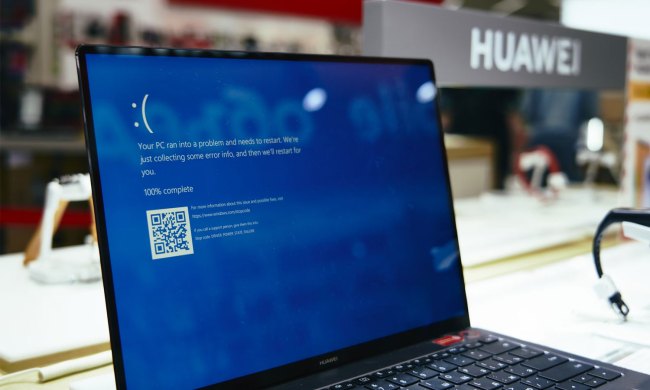
At 12am EST Monday morning, a member of hacktivist group Anonymous released what he says is a cache of internal emails from a Bank of America-owned insurance company, which prove the too-big-to-fail financial institution engaged in mortgage-related “fraud.”
The emails, referred to as “part 1” by Anonymous, were originally released on the website BankofAmericasuck.com. That site has been consistently overloaded, and thus unavailable, for much of the morning. The documents have also been made available for download on a number of mirror locations, as well as in the form of a Google document.
The source of the leak is an Anonymous member who goes by the name OperationLeakS on Twitter. He claims to be a former employee of Balboa Insurance, a firm once owned by Bank of America, which the source says keeps track of loans for lenders. To prove his authenticity, OperationLeakS has posted a paystub, an unemployment form, a dismissal letter from Balboa and an ID badge to BankofAmericasuck.com.
An “Anonymous insider” has also told Gawker that the leak is “legit,” and to expect the release of “some files,” as well as “some more emails,” to follow this initial email leak.
“Part 1” of the emails consist of internal employee communications, dated November 2010, between members of the Balboa staff.
In the first email, Balboa “operations team manager” Jason Vaughn asks to have the “images removed” from Balboa’s internal tracking system, “Rembrandt/Tracksource,” for a group of 50 to 100 documents related to lender GMAC.
In reply, Balboa employee Joan Anderson says that the “DTN’s” — document tracking numbers — cannot be removed from Rembrandt, but that the “loan numbers” can be removed, “so the documents will not show as matched to those loans.” Anderson adds that she will need the approval of upper management, since the request to remove the numbers is “unusual.”
At this point in the conversation, Vaughn realizes that what they are discussing might be a questionable activity. He says:
I’m just a little concerned about the impact this has on the department and the company. Why are we removing all record of this error? We have told Denise Cahen, and there is always going to be the paper trail when one of these sent documents come back. this to me seems to be a huge red flag for the auditors… when the auditor sees the erroneous letter but no SOR trail or scanned doc on the corrected letter… What am I missing? This just doesn’t seem right to me.
As Business Insider points out, it is both the admission of this being an “unusual request” by Anderson and Vaughn’s general apprehension that OperationLeakS is referring to when he says the emails will “crack [BofA’s] armor, and put a bad light on a $700 mil cash deal they need to pay back the government while ruining their already strained relationship with GMAC, one of their largest clients.”
In response to the email leak, an unnamed Bank of America “spokesman” told Reuters that any claims of wrongdoing by BofA are entirely unfounded.
“We are confident that his extravagant assertions are untrue,” the spokesman said.
Prior to this release, Anonymous effectively took down cyber-security firm HBGary by releasing a massive cache of nearly 72,000 internal emails after the company’s former CEO, Aaron Barr, claimed to have discovered the true identities of some of Anonymous’s members.
Anonymous, known for its pro-WikiLeaks sentiments, first gained wide-spread notoriety last year when the group managed to take down the websites of PayPal, Visa and Master Card after those companies stopped processing donation payments made to WikiLeaks. The group has caused similar disruption to websites operated by the governments of Egypt, Yemen and Tunisia, which was done in support of political dissidents in those countries.
It has long been expected that WikiLeaks, not Anonymous, would release evidence of illegal activity committed by Bank of America. So far, it is unclear whether these emails, and those allegedly held by WikiLeaks, are the same.



